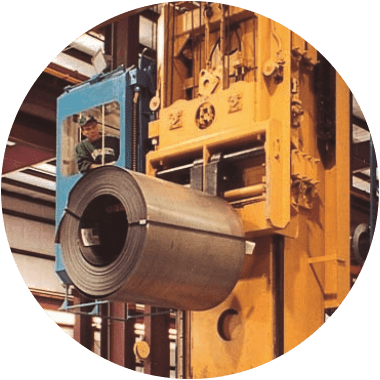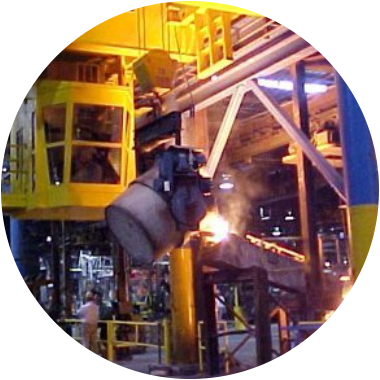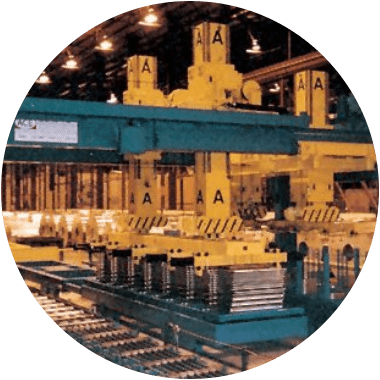Ace World Companies manufactures overhead bridge cranes ranging in capacities from 5 tons to 500 tons or more and in spans to meet your needs. We have been in business for over 30 years and have manufacturing facilities in Fort Worth, Texas, and Clinton, Tennessee. Our line of cranes includes Single Girder Top Running Bridge Cranes, Single Girder Under Running Bridge Cranes, and Double Girder Top Running Bridge Cranes. From simple to some of the most sophisticated equipment in use today, we design and manufacture all types of overhead cranes for all kinds of applications.
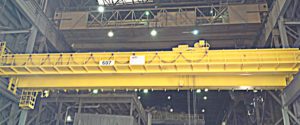
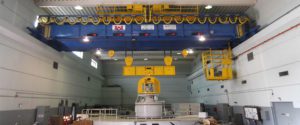
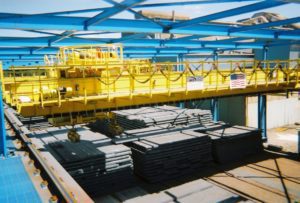

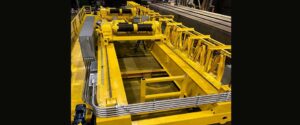
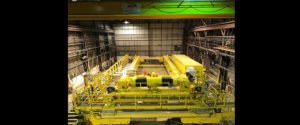
Why choose Ace World Companies to design and manufacture your overhead bridge crane? We have in-house engineers who can design and customize a bridge crane that will be the best fit for your application. Our knowledgeable sales staff is willing to meet you, look at your facility, and discuss your material handling needs. We will offer you a solution based on your needs, which will make your facility more productive and safe.
Ace World Companies boasts an 80,000-square-foot machine shop. We manufacture the parts for our cranes and hoists, which enables us to control the quality of the parts going onto your crane and the lead times for spare parts. We understand that time is a precious commodity, so we don’t waste yours.
Overhead bridge cranes are used to move heavy and cumbersome loads from point A to point B in your facility. When choosing overhead cranes, it is important to consider both the present and future operations of your business. You need to know at what capacity your crane will be lifting and how often you will be lifting and moving the load. These questions will determine what type of overhead crane you will need, the service class of your crane, and the crane capacity. The proper service class is a must to reduce the wear and tear on your crane as well as extend its life.
Ace World Companies offers a variety of overhead bridge crane systems tailored to your specific requirements. Whether you need a crane for light-duty tasks or heavy-duty industrial applications, we have the expertise and experience to provide the perfect solution.
A single girder overhead crane consists of one beam that is supported by end trucks on each side of the beam. The trolley and hoist are mounted on the bottom flange of the beam. This type of crane has a reduced hook height compared to the double girder crane. The single girder crane is less expensive because it consists of only one girder as compared to the double girder crane. We offer top-running and under-running models:
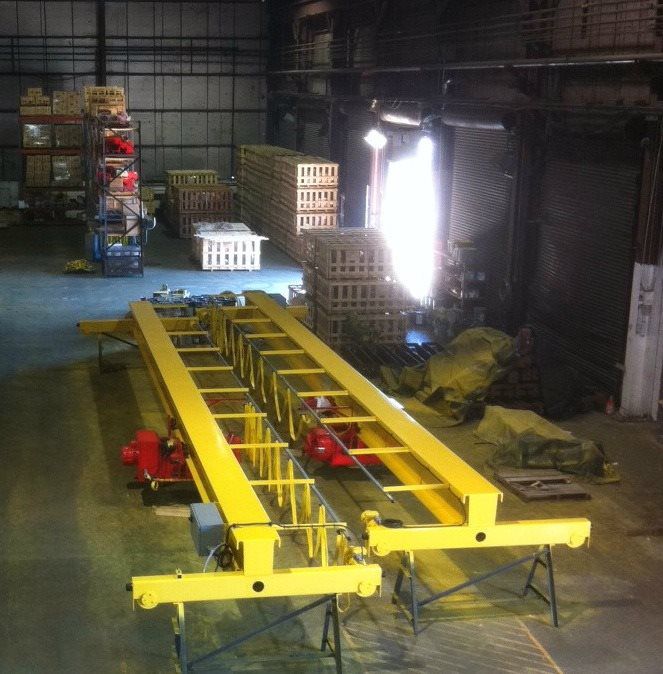
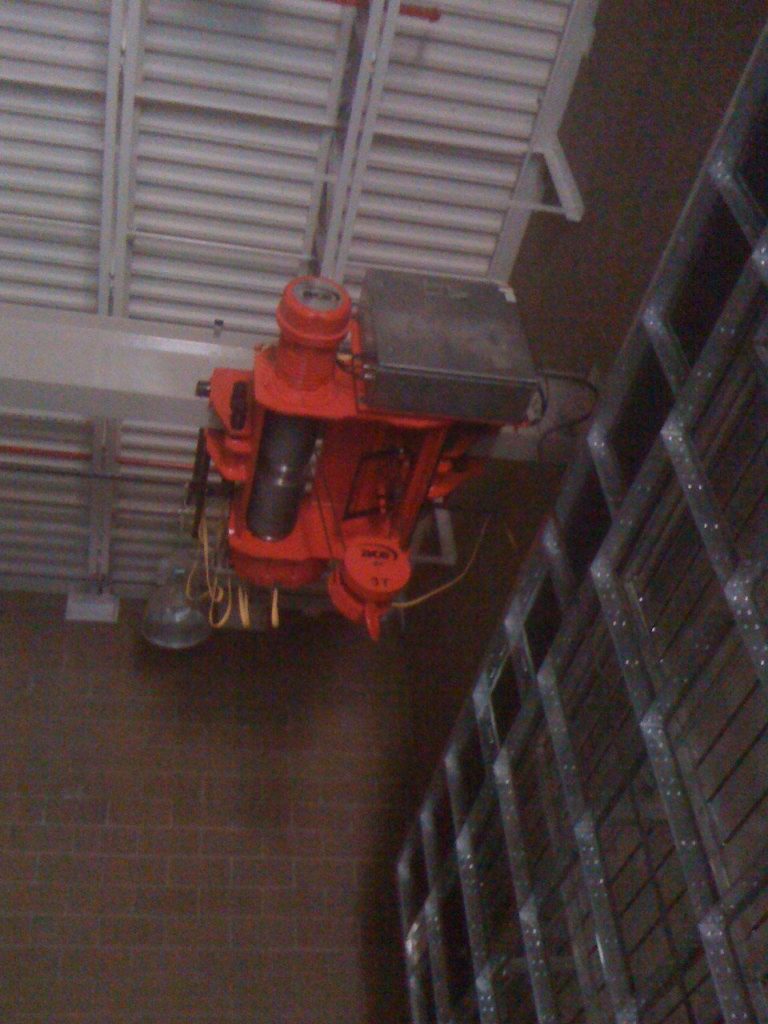
Double-girder top-running overhead cranes are a type of overhead crane that can be used in heavy-duty situations. Their load range is 5-500 tons, and the span can be over 100′. This crane runs along rails installed on top of the crane runway and has two girders.
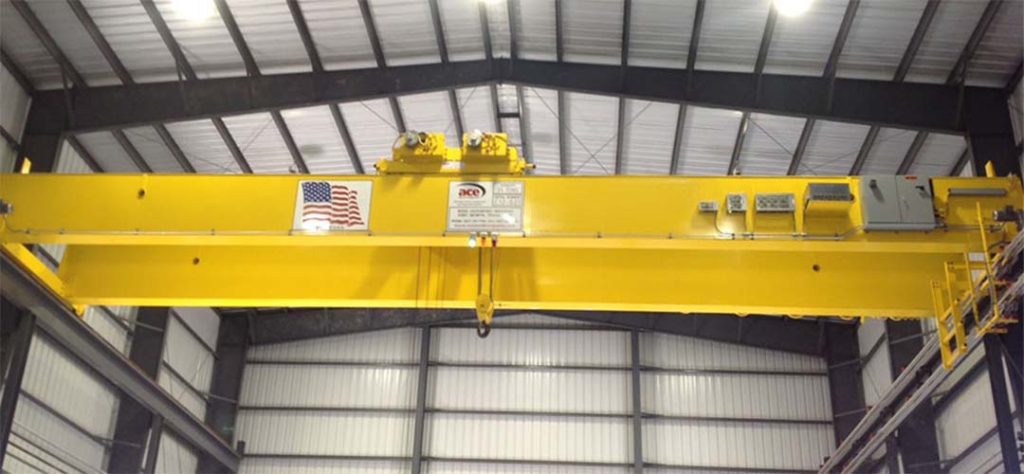
Because of the extra girder, the cranes are more expensive than single-girder cranes. However, they offer a better hook height than single-girder cranes because the trolley hoist sits on top of the crane girder, allowing the hook to rise between the crane girders.
To help you make informed decisions about your overhead crane system, we’ve compiled a brief glossary of common terms you’ll encounter when discussing crane specifications and features. Familiarity with this terminology will ensure you understand the components and capabilities of your crane system.
Understanding these common terms will help you communicate effectively with our experts and make informed decisions about the specifications and features you need for your overhead bridge crane system.
1. Class A — Standby or Infrequent Use
Class A cranes are designed for standby or infrequent use in applications where the crane is not essential to daily operations. These cranes are typically found in powerhouses, turbine rooms, and motor rooms. They operate at slow speeds and experience long periods of inactivity between lifts. Class A cranes are a cost-effective solution for facilities that require occasional lifting capabilities for maintenance or infrequent tasks.
2. Class B — Light Use
Class B cranes are designed for light-duty applications with infrequent use. They are often found in repair shops, light assembly operations, service buildings, and light warehousing environments. These cranes operate at slow speeds and typically handle loads ranging from none to occasional full capacity, with 2-5 lifts per hour. Class B cranes are a versatile solution for facilities that require occasional lifting for maintenance or light production tasks.
3. Class C — Moderate Use
Class C overhead cranes are designed for moderate-duty applications. These cranes are commonly found in machine shops, paper mill machine rooms, and other industrial settings where they are used for frequent lifting and moving of loads. Class C cranes typically operate at 50% of their rated capacity, with 5-10 lifts per hour and an average lifting height of 15 feet. They are a versatile and reliable option for a wide range of industrial applications.
4. Class D — Heavy Use
Class D overhead bridge cranes are designed for heavy-duty applications with frequent use. These cranes are often found in steel service centers, fabricating plants, and lumber mills. They typically operate at 50% of their rated capacity, with 10-20 lifts per hour and an average lifting height of 15 feet.
5. Class E — Severe Service
Class E overhead cranes are designed for severe service applications with continuous use at or near full capacity. They are commonly found in demanding environments like scrap yards, steel mills, cement plants, and lumber mills. Class E cranes often utilize buckets or magnets for material handling and are built to withstand harsh conditions and frequent heavy lifting cycles.
6. Class F — Continuous Service
Class F overhead bridge cranes are designed for continuous, severe-duty applications where the crane operates at or near its rated capacity non-stop. These highly specialized cranes are often custom-designed for critical tasks within a facility and require the utmost reliability and ease of maintenance. Due to the extreme demands placed on them, Class F cranes are typically found in industries with the most challenging operating environments.
Our cranes are engineered to meet each industry’s unique challenges, ensuring optimal performance and productivity. We deliver overhead bridge cranes to several sectors:
For a full understanding of our offerings, please visit our Overhead Crane Photo Gallery to view some of our past projects.
Contact us today at 800-431-4223
Are you interested in our overhead cranes? Please fill out our quote request form and we will get back to you. Are you interested in our overhead cranes?
